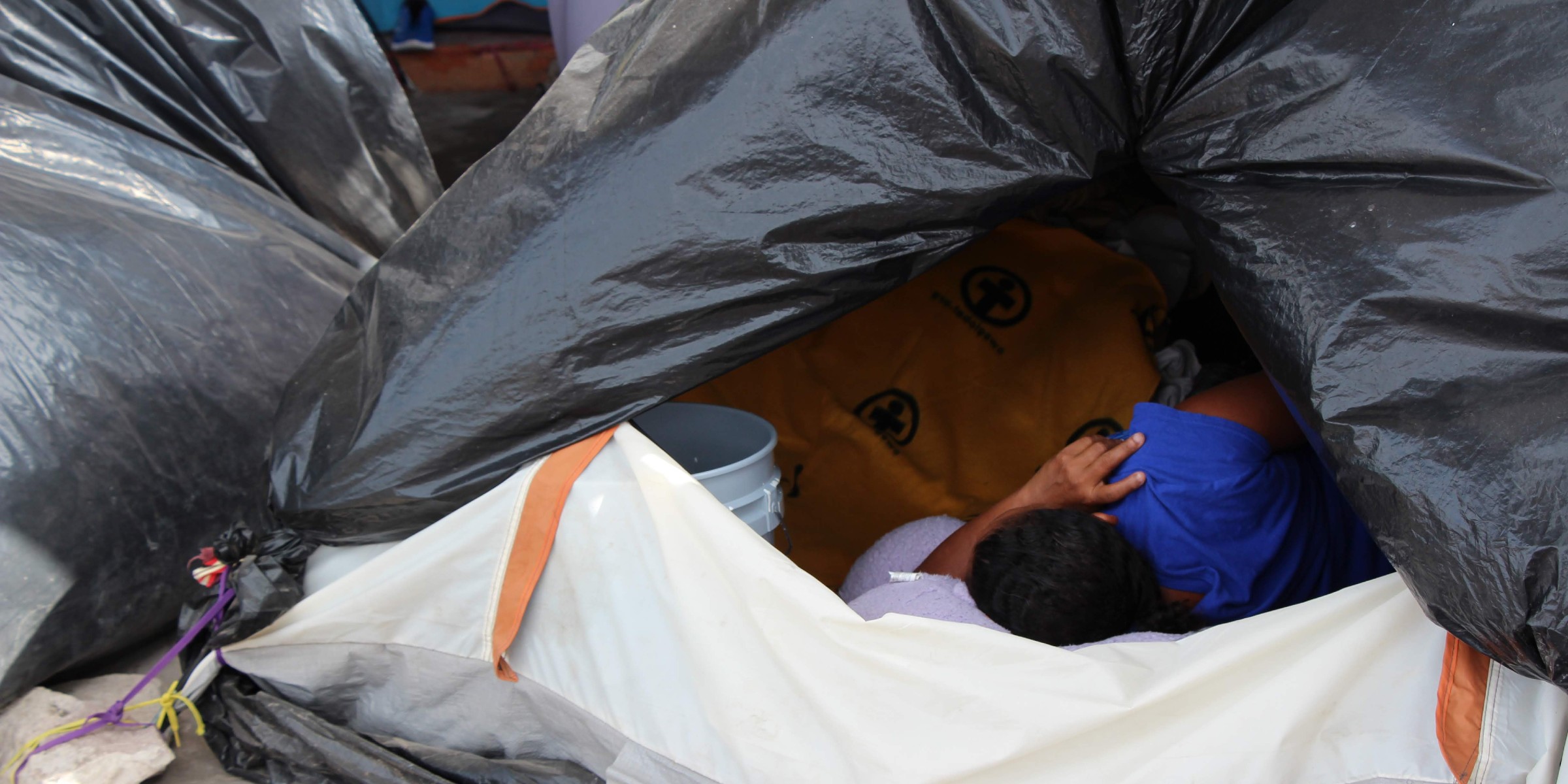The Trump administration’s “Remain in Mexico” program, otherwise known as Migrant Protection Protocols (MPP), began just one year ago in January 2019.
The Trump administration’s “Remain in Mexico” program, otherwise known as Migrant Protection Protocols (MPP), began just one year ago in January 2019.
If you’re lost in the alphabet soup of federal immigration policy, under MPP, people are made to wait for months in dangerous conditions in Mexico — including in the state of Tamaulipas, a place even the U.S. State Department deems off limits for travelers. In the last year, it has left thousands of people stranded at our border, abiding by these new rules and waiting for answers from the U.S. government.
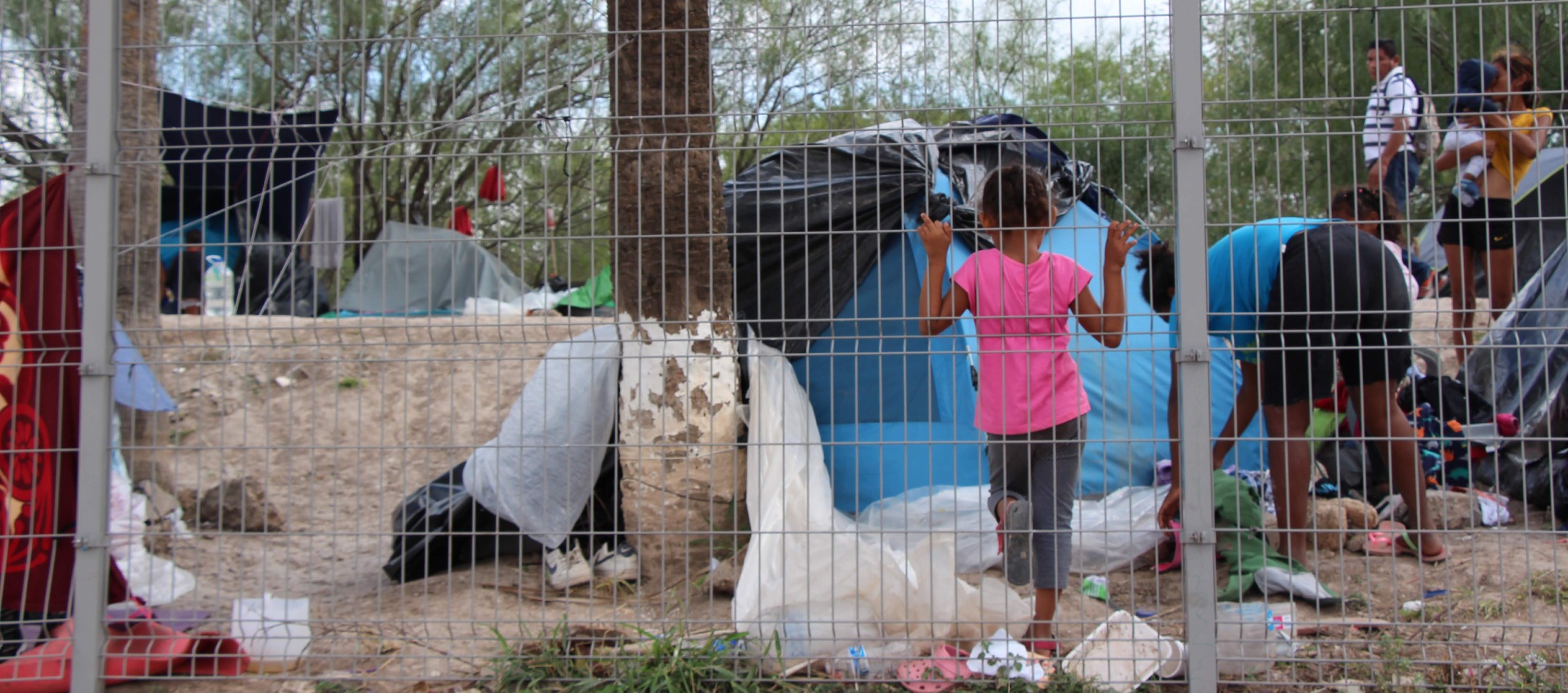
A child waits amongst trash and debris in the MPP encampment in Matamoros, Mexico.
There haven’t been many answers, however. The Trump administration continues to paint a distorted picture to deflect from the illegality of MPP: in their version of the facts, if asylum seekers haven’t actually crossed into the U.S., the administration can say it has stopped the flow of migration into the country. Problem solved, crisis averted, political points gained.
We know better. Since the onset of MPP, the ACLU of Texas and the ACLU National have fought it tooth and nail. In one of our efforts to expose the tragedies brought on by this program, we have advocated for several pregnant asylum-seekers subjected to it. The women are part of a complaint we filed in September to the internal watchdog for the Department of Homeland Security (DHS). Yet despite the complaint, another lawsuit by the ACLU National, more pending litigation, and countless hours of advocating and organizing against the policy, MPP remains in effect today.
One of our pregnant clients subjected to MPP, Melissa*, a Honduran woman who is seven months pregnant, was recently allowed into the U.S. with her daughter and husband thanks to our advocacy efforts. Her journey was a long and traumatic one. Now, she and her family are able to await their asylum hearings in safety.
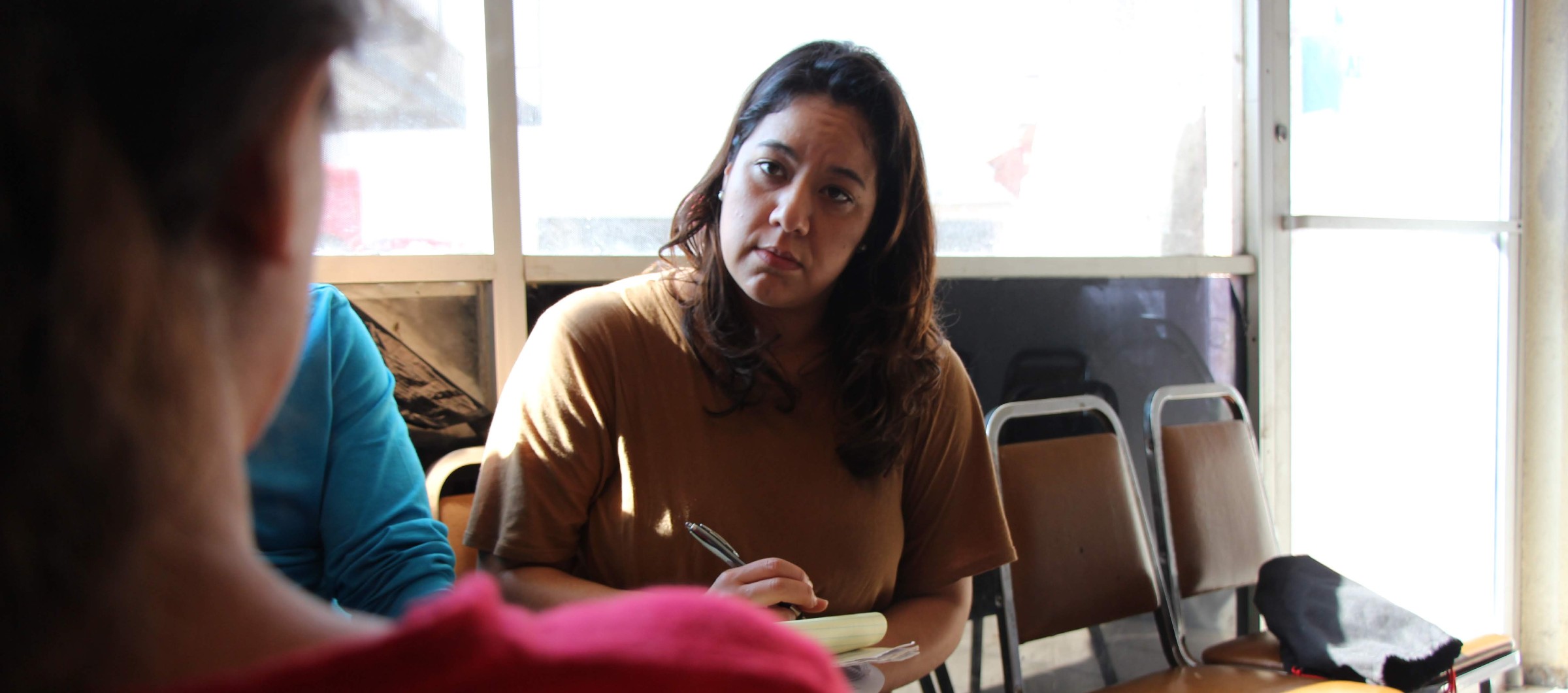
ACLU of Texas attorney Rochelle Garza speaks with Melissa and her husband about their difficult journeys.
We don’t dare say that cases like Melissa’s are slivers of hope, however; they are the rare exception. The fact is that people now face nearly insurmountable hurdles to even get the chance to make their case for asylum. And Melissa and her family have only made it through step one; they have not received asylum and may never receive it. Reports say there is currently less than a 1% chance of having an asylum case approved.
To show what it takes to survive MPP — just to get a shot at a 1% chance of being granted asylum — we’ve outlined some of the hardships that families and individuals must navigate below:
Find a pro bono immigration attorney with some technical knowledge of the web of changing, and oftentimes arbitrary, policy rules that have emerged.
Because DHS and Customs and Border Protection (CBP) execute their policies with little to no oversight, it is critical for a person seeking asylum to find an experienced immigration attorney who can help navigate stacks of forms, court dates, and a hostile legal system on their behalf. Oftentimes, CBP provides documents, in English, without hearing dates, or when or how to appear for court. All of this information is critical to someone’s case and having a lawyer’s assistance is essential.
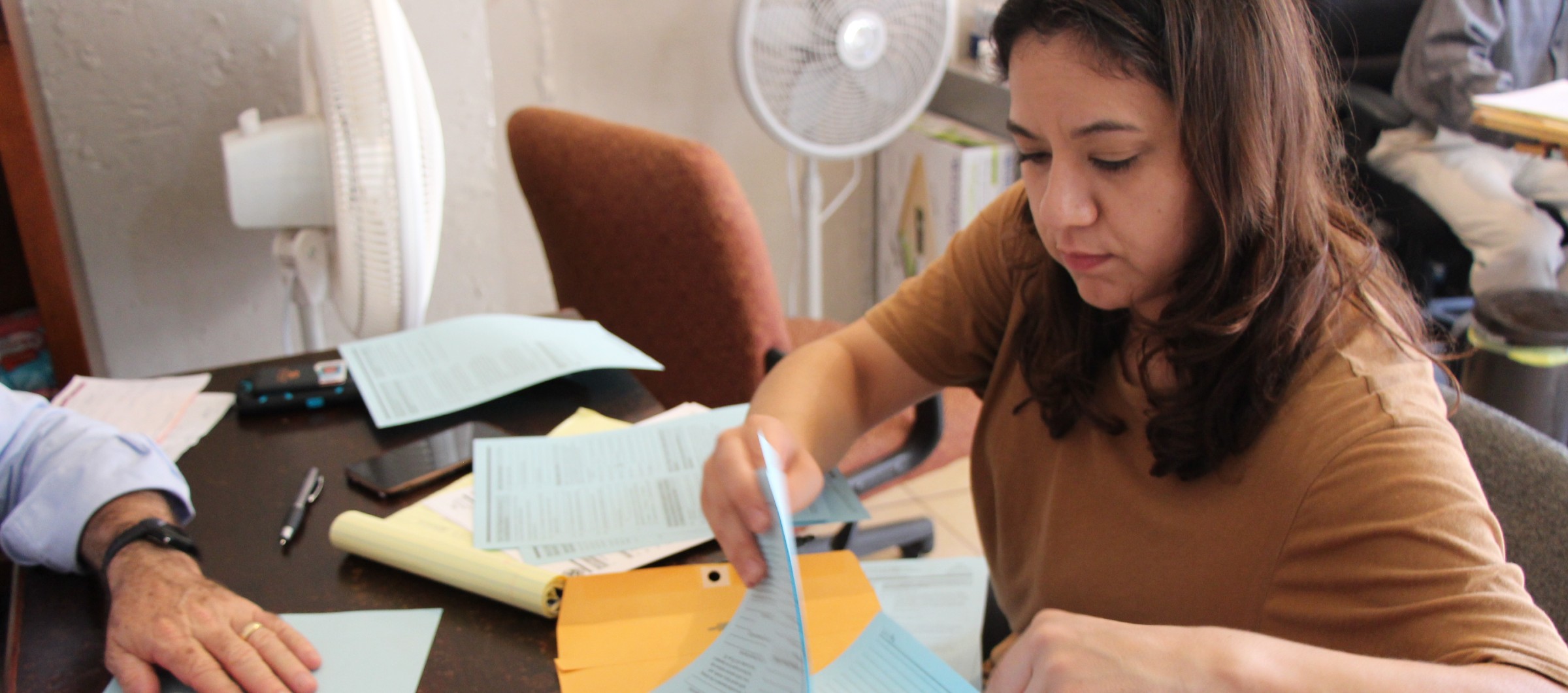
Rochelle Garza reviewing a pile of immigration paperwork on behalf of Melissa and her family.
Meanwhile, very few people are able to make consistent money while forced to stay in Mexico, so they would also have to find a qualified attorney who offers their services free of charge. This is a nearly impossible task.
Even if an asylum seeker manages to find an attorney, it is still an uphill battle. Hearings are held in “tent courts” that are under CBP’s control and notorious for being legal black holes for the asylum seekers who enter. Attorneys are not allowed to bring in phones or laptops, and they typically have 30 minutes or less to prepare their clients. They are additionally not allowed to provide Know Your Rights presentations or offer free legal assistance, which has traditionally been allowed in immigration courts.
To make matters worse, until recently, attorneys have not even been allowed to represent their clients at the screenings that determine a person’s fear of returning to Mexico for those who have experienced severe violence, including kidnapping and sexual assault. I have somehow managed to enter the tent courts on behalf of our pregnant clients, and each time I am shocked by the disregard for people’s rights and basic human decency.
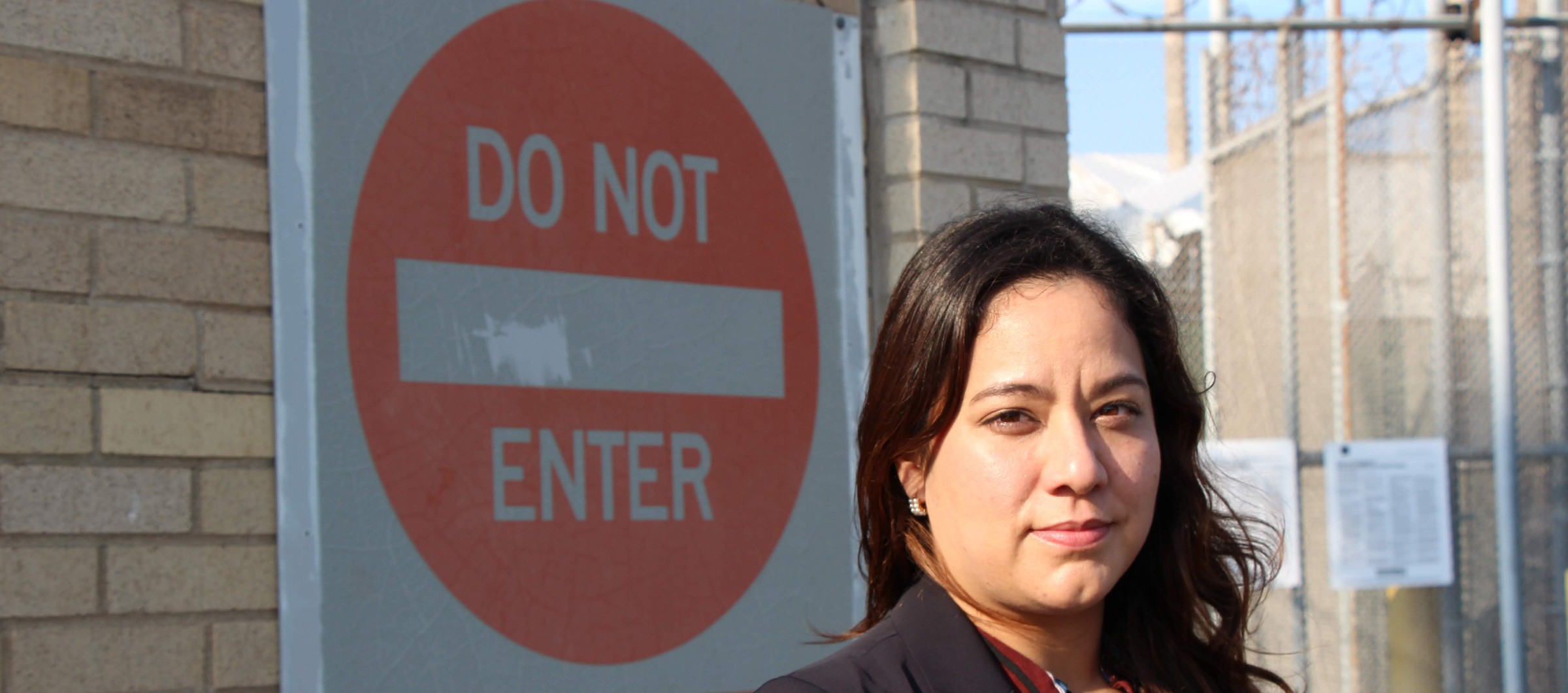
ACLU of Texas attorney Rochelle Garza in front of the infamous federal immigration tent courts in downtown Brownsville.
Figure out how to survive in a massive tent encampment with thousands of other people forced to live on the streets.
The tent encampments that have popped up in Matamoros, Mexico as a result of MPP are severely crowded with families and individuals waiting to plead their cases. Children are not in school and are exposed to illnesses and open sewage. There is very little access to medical care for the most vulnerable, like pregnant women.
Many asylum seekers subjected to MPP must rely on donations and inconsistent jobs to survive while in Mexico. Every day they are at risk of being kidnapped, their family extorted, and being murdered if their families cannot pay the ransom. Every day in the encampments is an unimaginable struggle to stay alive.
Follow the rules you are told by CBP officials. When officials say something contradictory, follow the new rules until newer rules emerge.
Melissa had been told to show up for her court date, in the infamous “tent courts,” at 4 a.m. in mid-November 2019. She eagerly obeyed, nervous for the chance to plead her case.
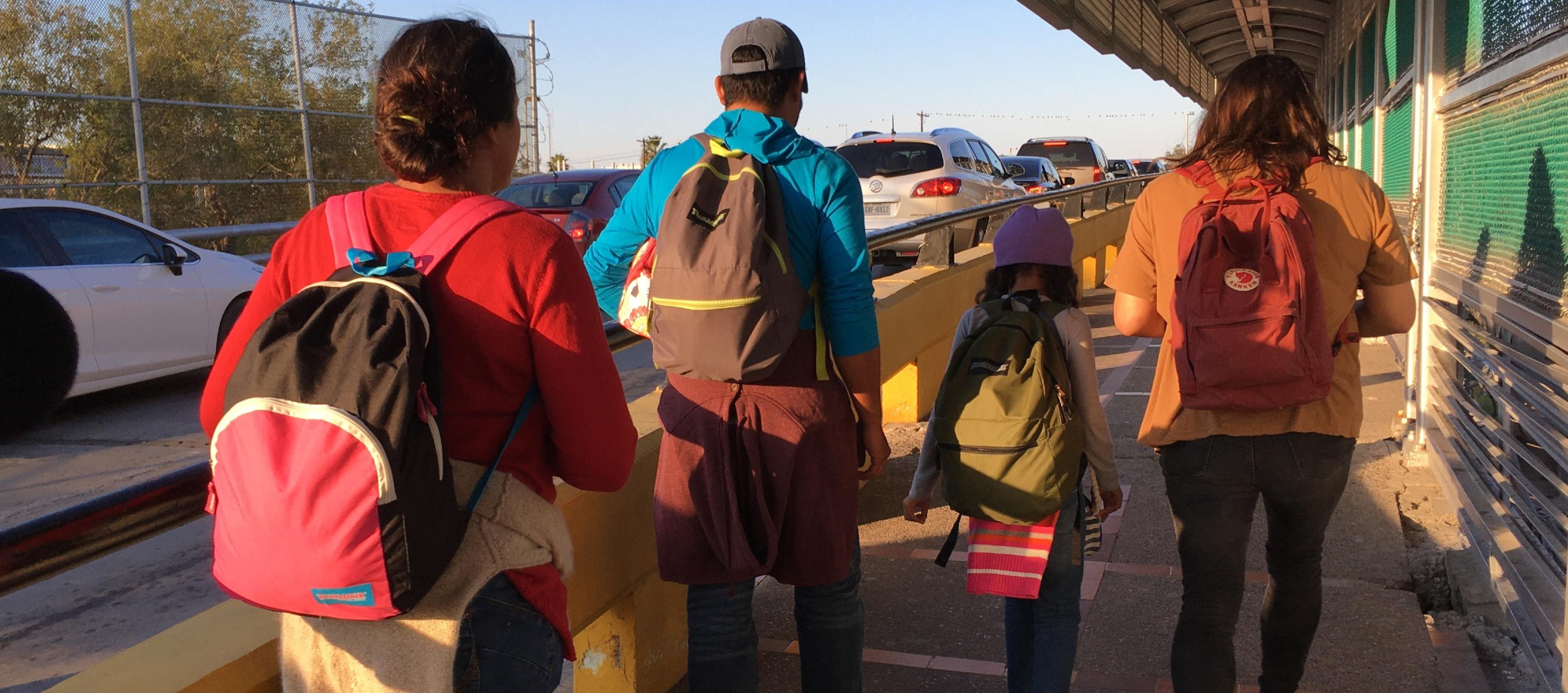
Rochelle Garza accompanies Melissa and her family to try and learn more about why they were not allowed to enter for Melissa's court hearing together.
With her family in tow, Melissa approached the CBP officials on the bridge that connects Brownsville and Matamoros. They told her she could pass, but her husband and daughter could not because they had been given a different court date, almost a month later. Frantic and unwilling to be separated from them, as they had once been, she pleaded with the officers, asking for someone in charge to help them, but no one would.
This scenario is a result of CBP agents having unfettered discretion in their decision-making. Unfortunately, many asylum seekers are forced to make decisions based on ill-informed officials that could in turn affect their immigration cases. In Melissa’s case, the family remained in danger for another month until they were finally allowed into the U.S. with the help of the ACLU of Texas.
You see, none of this is realistically achievable for the thousands of people still stranded in Mexico. And the policies currently being implemented at our borders were structured that way on purpose.
The current federal administration has made the conscious decision to wipe its hands of its responsibilities to asylum seekers looking for refuge at the border, as countless others have sought asylum before them. It wants asylum seekers to give up, and they want advocates to give up as well.
But we won’t give up. Not until we bring humanity and justice to our painfully broken immigration and asylum systems. The ACLU of Texas, the ACLU National, and countless other immigrants’ rights organizations will continue to push back against MPP — and other illegal and unjust policies like it — until they come to a total end.
Voices of the Rio Grande Valley: How Extremist Federal Policies Continue to Threaten Texas’ Borderlands. Over the next several weeks, the ACLU of Texas, in collaboration with staff and community members based in the Rio Grande Valley (RGV), will be sharing a series of essays, photos, and videos that demonstrate the region’s ongoing struggle to ward off intrusion of federal policies on everyday life. While many of these policies are not new to the RGV, they have been ramped up under the Trump administration, which has used the borderlands, its people, and its resources as pawns in a political game. But the people of the Rio Grande Valley are not staying silent. Join us as we explore the rich history, culture, and environment of this region in southeast Texas, and how its residents are fighting back to preserve their homes and way of life.

